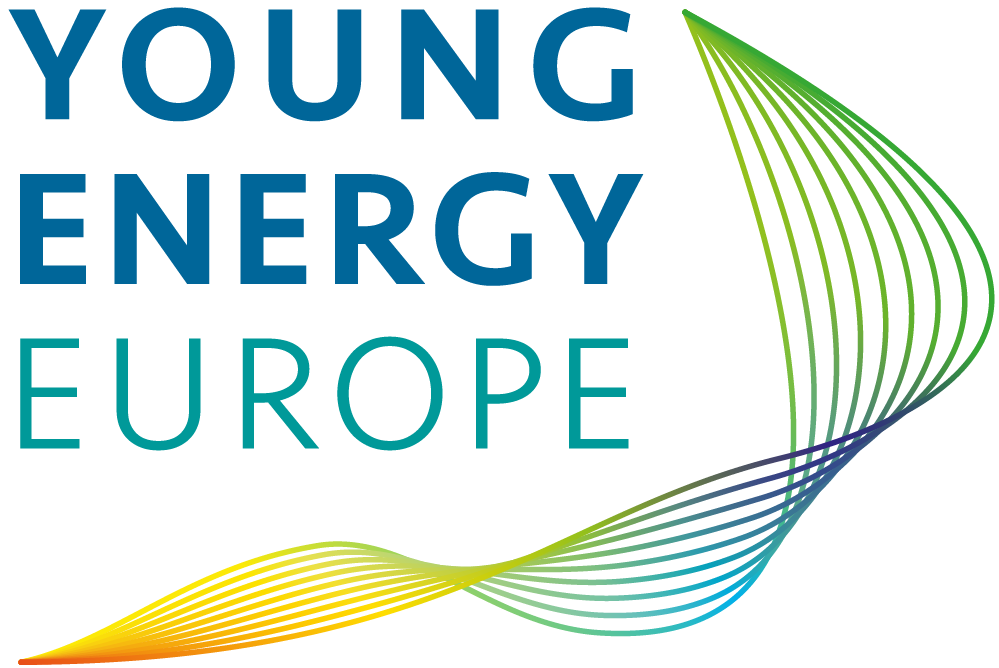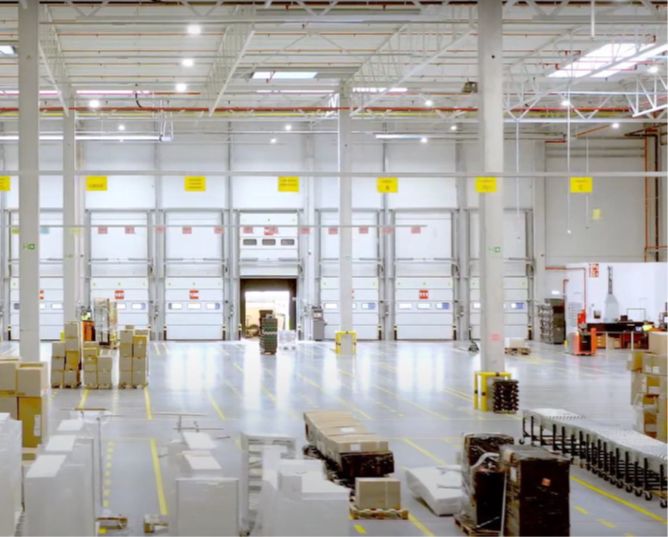No Limit Sp. z o.o. is a Polish logistics company with around 1,300 employees and 20 warehouse and distribution centers in Central and Eastern Europe. The company offers a broad portfolio ranging from contract logistics, warehousing, distribution and freight transportation to time-sensitive delivery for online retailers on the European market.
Despite the focus “on the road”, steps have been taken in recent years to reduce the negative impact on the environment. For example, fleets of electrically powered vehicles are already in use in Warsaw and Silesia, and experience is being gained with aerodynamic semi-trailers and LNG-powered tractor units in long-distance transport.
The three-person Energy Scout team from No Limit, Dominika Groblewska, Aneta Stegińska and Paweł Tomczak, developed two promising approaches to saving energy in the logistics warehouses as part of the Young Energy Europe training sessions. One was an energy-saving classic – modernizing the lighting. The other one was saving heat by installing PVC curtains in the warehouses and at the loading gates.
The team first calculated the potential savings associated with replacing the lighting in a warehouse with an area of approx. 6650 m2. A total of 450 old lights (124 W per lamp) are installed in this hall, which will be replaced with energy-saving LED lights in the practical project. Motion detectors are added for less frequented areas.
Overall, the calculations showed an annual savings potential of 115 MWh of electricity and 94 tons of CO2. Many LEDs have a service life of 50,000 hours, which is 16 years with a weekly burning time of 60 hours. However, the investment pays for itself after just 2.7 years.
The second approach was to reduce heat losses during the heating season. Two warehouses were analyzed. In the first, there are three loading gates that are open for an average of three hours per 24 hours for loading delivery vans. In the second warehouse, which is a transshipment warehouse, there are seven gates that are open for an average of five hours per 24 hours.
The problem – the bodies of the smaller delivery vans are narrower and lower than the door opening. Between the vehicle body and the rubber aprons that seal the doors, there are gaps through which warm air escapes from the warehouse during loading.
The solution is simple but effective: a PVC curtain seals off the open spaces and significantly reduces heat loss. Among other things, the team took into account the average monthly temperatures in the Warsaw region during the heating period in their calculations.
The Polish jury awarded third prize to the Energy Scouts’ practice-oriented project. The fact that the project was already in the implementation phase, the procedure and calculations were documented in detail and the team was able to explain its idea very clearly, was highly rated.
Lighting
Thermal insulation
- Industry sector: service provider in the transportation/distribution/logistics sector
- Energy source: electrical energy
- Energy savings potential electricity: 114.84 MWh/year
- CO2 savings potential:93.9 tons CO2/year (electrical energy)
- Investment costs: 79,278 €
- Payback period: 2.73 years
- Energy source: gas (PVC curtains in the warehouse 1 & 2 reduce gas consumption)
- Energy savings potential gas: 28.57 MWh/year & 96.6 MWh/year
- CO2 savings potential: 5.7 tons CO2/year & 19.5 tons CO2/year
- Investment costs: 4,387 € & 6,542 €
- Payback period: 1.17 & 1.82 years
- Company:
No Limit Sp. z o.o.
ul. Księżnej Anny 3
03-866 Warszawa
Poland
https://en.nolimit.pl/



